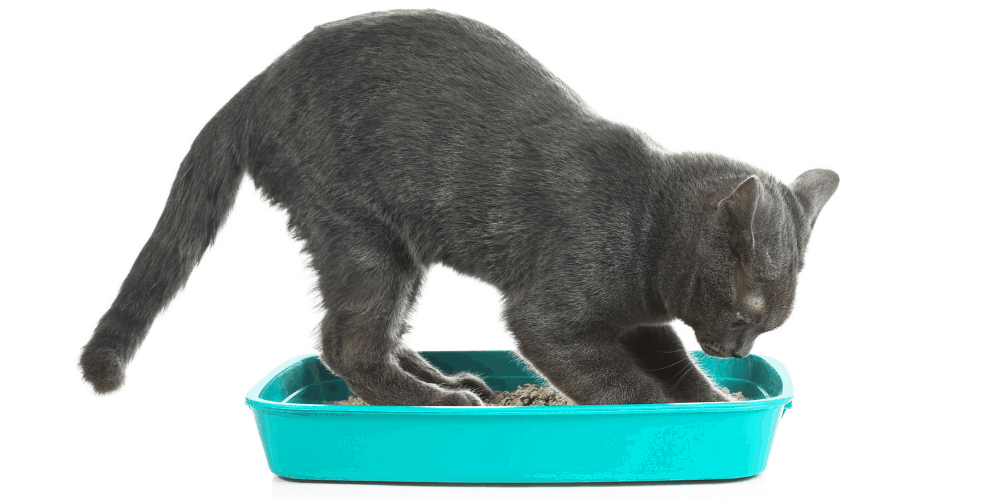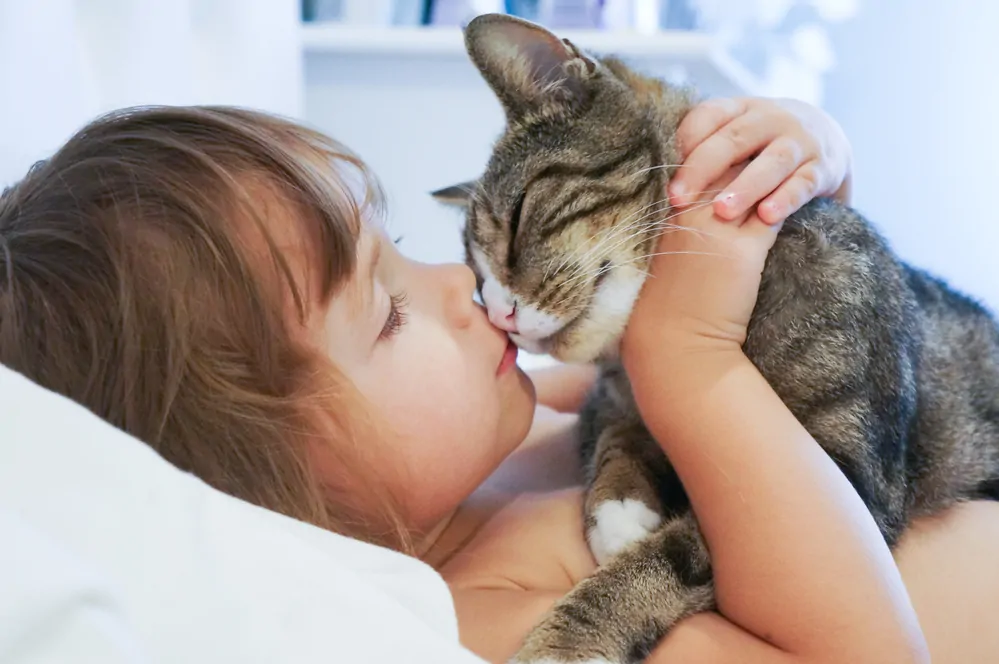Cats work hard in their litter boxes, digging holes and covering up whatever they’ve left behind. Everyone knows they do it, but what makes cats want to dig holes and bury things?
The reason cats dig holes is to instinctively cover evidence of their presence. Urine and feces are meant to identify a wild cat to any potential prey or fellow predators. Also, wild cats often kill more than a belly full. To keep food to themselves, they’ll either drag a carcass up a tree or bury it.
Just because our cats aren’t out in the wild and have been domesticated, doesn’t mean that they’re a different animal. This type of behaviour carries over from the woods to the cat’s box.
Some Wild Instincts Still Remain in Cats
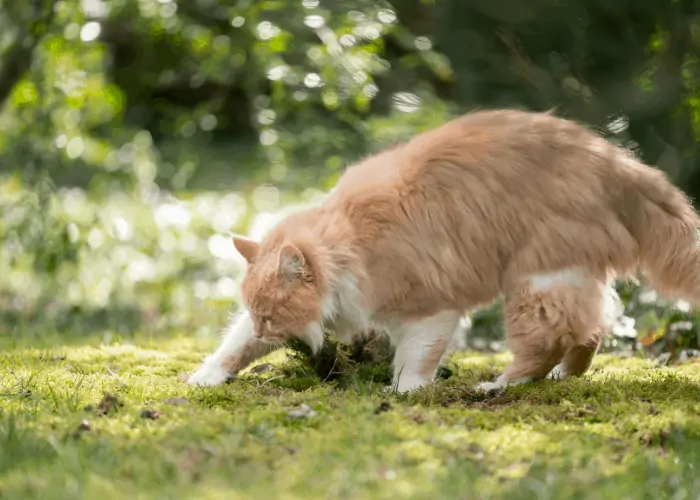
Mercifully, our four-legged feline friends are tiny in comparison to their wilder cousins. Cats, though well entwined into our lives, still harbor instincts genetically passed down throughout generations.
Only their size and conditioning to understand where their meals are coming from is what keeps them willing participants in our relationship with them.
Yes, they love us, but as is true in any relationship, they can get mad, irritable, too rambunctious, playfully violent, and so on.
Just ask anyone who’s wound up owning a huge cat, believing it’s a good idea to treat them as a house cat. It never ends well because all it would take is one outburst to cause serious injury or death.
What I’m Saying Is…
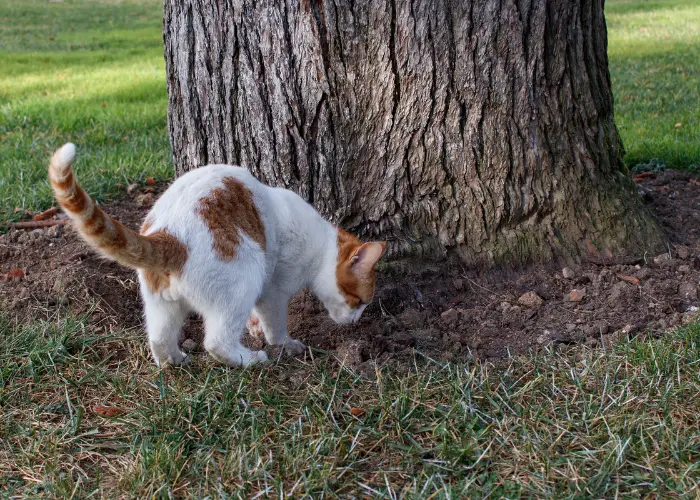
The reason I’ve said all that is to state the case that many predatory instincts that larger cats get to act upon remain within our tiny little house cats. Yes, these instincts are subdued and under the thumb of domestication, but they’re there nonetheless.
If you thought the reason why cats bury their pee and poop is because they’re clean animals, think again. This is something that we impose upon their behavior- thinking that they are as revolted by their waste as we are.
They just feel the need to because that’s what they’re instinctively compelled to do. In the wild, it could mean life or death, hunger or a full belly, peace or a fight. Just as male adult cats instinctively feel the need to spray to mark their territory, the same instincts apply when covering over their scent.
Cats Digging to Hunt
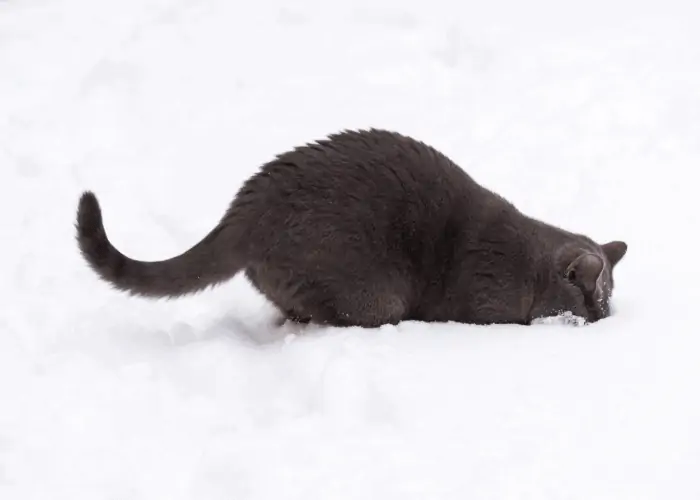
This is particular to outdoor or barn cats.
There are many prey animals that come out of the ground that a cat would love to dig for. Chipmunks, mice, moles, snakes, and a host of insects can be found entering and exiting small holes in the ground, and if a cat catches their scent or even catches a glimpse, the target is acquired.
A patient cat can sit for quite a while waiting for some action to unearth itself. But others might decide it would be better off digging up their target. These little critters are often the trophy the cat has dangling in its mouth when pawing at the door to come in.
Digging to Hide Food
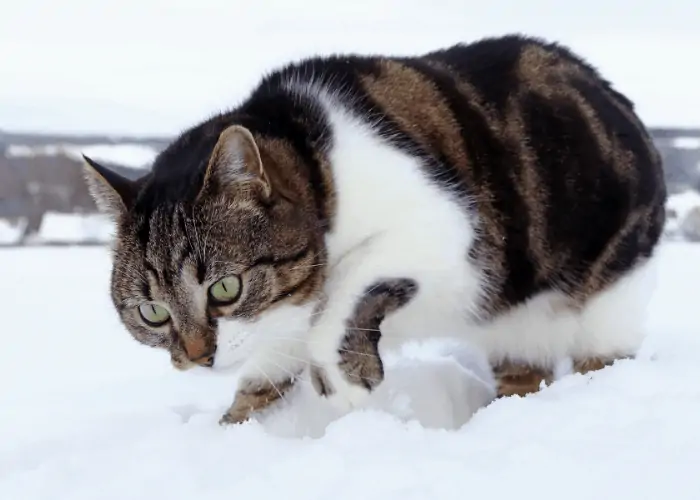
As stated above, large cats have been known to drag away food from a kill, eat at the site, and bury it to save it for later. Outdoor housecats can do the same thing but with much smaller prey.
Unlike wild cats whose life depends on that kill, housecats, more often than not, will forget about their buried little kill and move on with life. They depend on us to feed them, rather than having to remember things as petty as where that last kill was buried.
Why Do Cats Dig at the Floor?
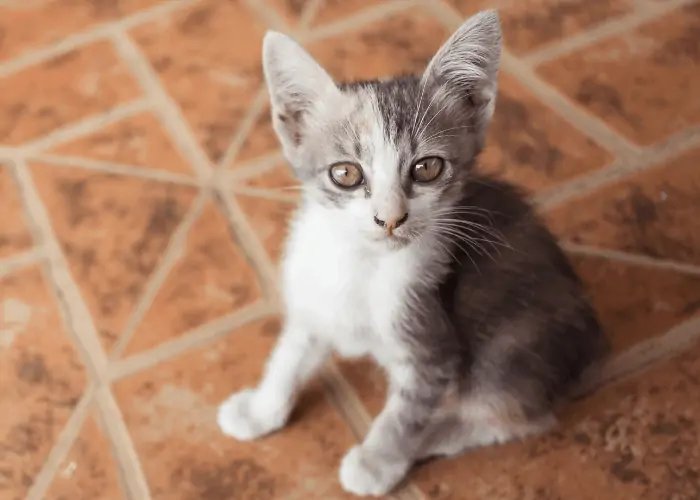
There are a few instances where you’ll find your cat digging (or at least appearing to dig) on the floor. There are a few reasons they’ll do this, among which is the complete opposite of the reasoning behind burying things.
Cats will paw and dig around their food and water bowls from time to time to spread their scent. Due to the scent glands on their paws, they can dig in the kitchen floor and get the job done- though, to us, it appears pointless, having not gotten anywhere with the digging.
We can catch our cats digging at the carpet or on furniture to remove layers of their claws. Cat claws shed layers over time. As the claws dull, the outer layer comes off with some agitation.
While working on their claws, they’re often simultaneously releasing scent through the glands on their paws. So, in a way, they’re multitasking. Sharpening their claws, spreading scent, and trashing our furniture.
An Industry Created Over Digging and Clawing
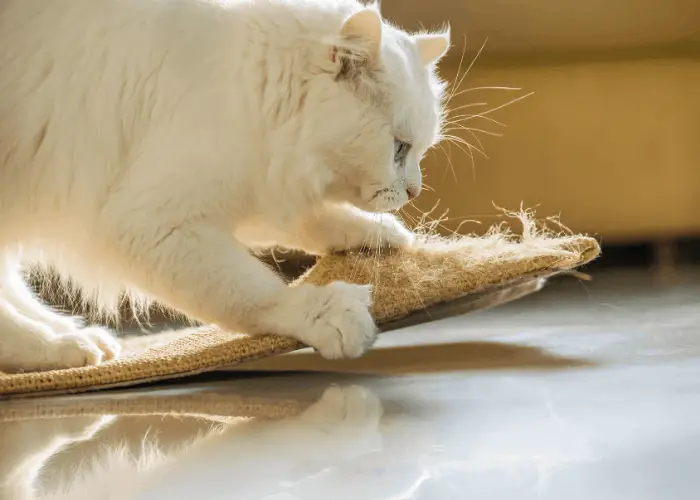
To try and save the life of your carpets and furniture, many products out there are meant to deter this behavior. Products like scratch pads, cat condos, and scratching posts are created to be more of a juicy target to the cat rather than your Layboy or carpet.
These products encourage the cat to take their digging and scratching desires out on a safe and disposable target. Will they stop the cat from digging in the flower pot? Probably not, at least not in the long run.
What comes from instinct is incredibly difficult to break in a cat. If the cat is instinctively digging in certain places, such as flower pots, gardens, or sandboxes, you’re fairly limited as to what to do about it.
You can either prevent the cat from being able to get to such things or scold them in a way that they understand when you catch them in the act and only if you catch them in the act. After the fact is pointless, as they live in the moment and typically won’t understand why they’re being punished when it’s too late.
Final Thoughts
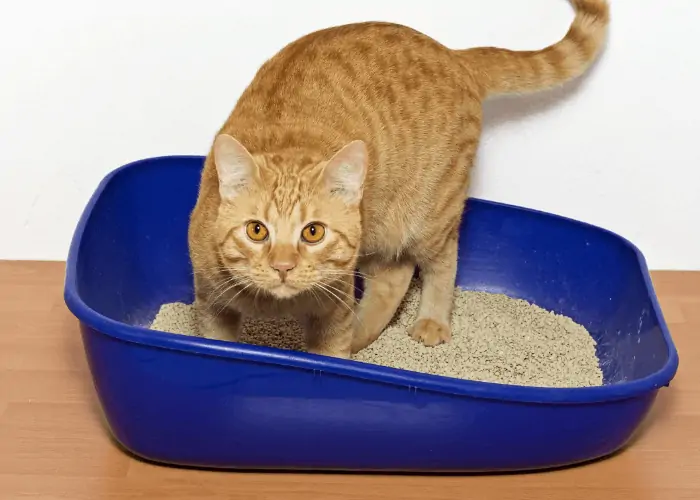
What we consider a neat and clean behavior as far as digging a hole and covering up their waste goes is a display of an instinct present with cats as long as they’ve been hunting prey to survive. Cats can dig to cover up their scent, or, dig to spread their scent.
Either way, it’s a behavior that goes deeper than a cat just doing cat things.
To us, it can be cute, funny, destructive, or annoying when a cat is digging at things around the house. To the cat, these things are very important and done for good reasons- at least to them.
